Do only yogurt-knitting vegans start co-operatives?

(image CC BY-ND Bryan Mathers)
Despite the best efforts of the London Underground to crush us into submission before we even started, weareopen.coop had a great first planning session at Ravensbourne in London today. John Bevan and Bryan Mathers were there with me in person, and Laura Hilliger joined us via the magic of appear.in from her home in Germany.
We’d come up with lots of questions in our pre-planning meeting, as well as some aims for things we’d like to get out of the day. You can see our planning Hackpad here.
Principles
Once we’d all arrived and we’d figured out the tech to allow Laura to participate fully (which involved my ever-handy Sony XRS-11 bluetooth speaker) we dived straight into the principles by which we want to work. John, Bryan and I worked on a nearby whiteboard, while Laura took a photo of the piece of paper she worked on:
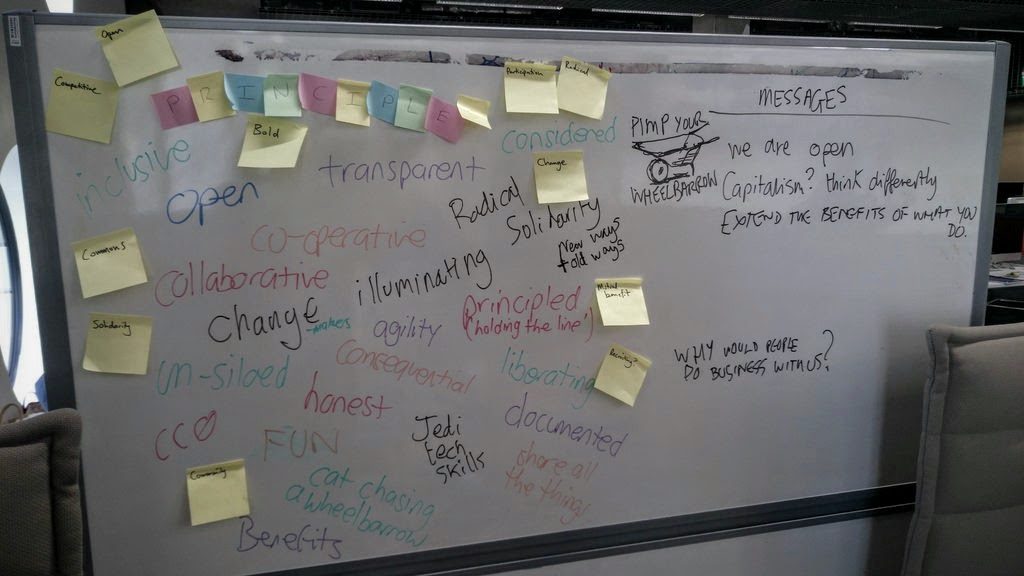
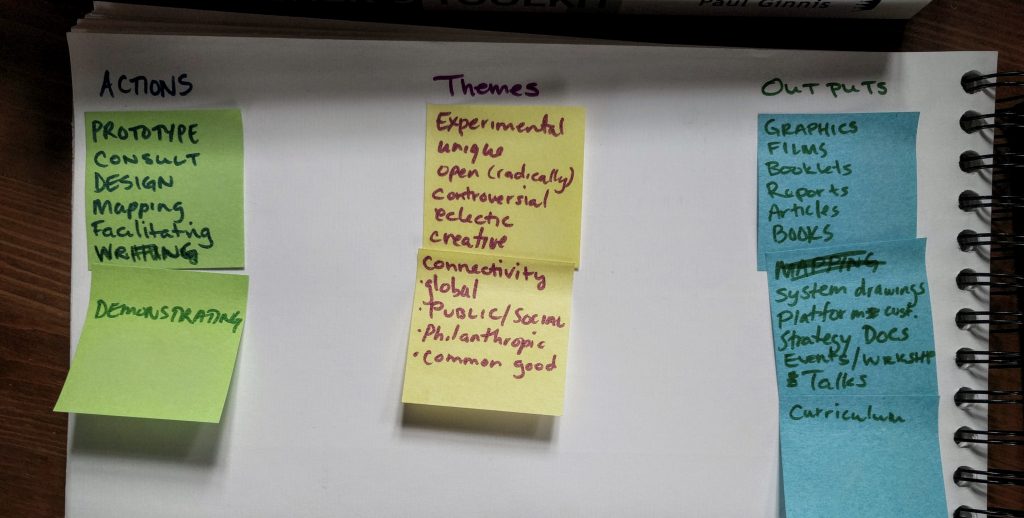
Riffing off Laura’s three-part structure, we formulated three questions to answer:
- What do you do?
- How are you different?
- What do you create?
The answers to these are on the hackpad, but I’ll share where we ended up after much discussion around the second point:
We particularly liked the notion of being ‘acrobatic’ (although without using the metaphor of a circus). There’s something about it that suggests discipline with flexibility.
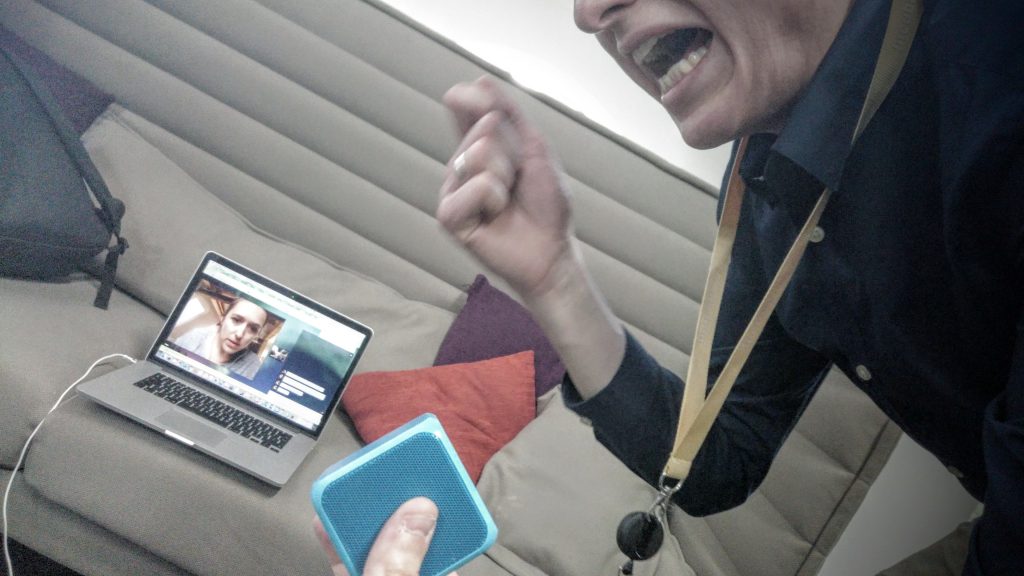
Toolsets
We spent some time both ‘silent hackpadding’ and discussing the questions we’d come into the day focused on, but this led quickly to considerations around tools. From that we found that a really nice metaphor emerged around tools in a workshop.
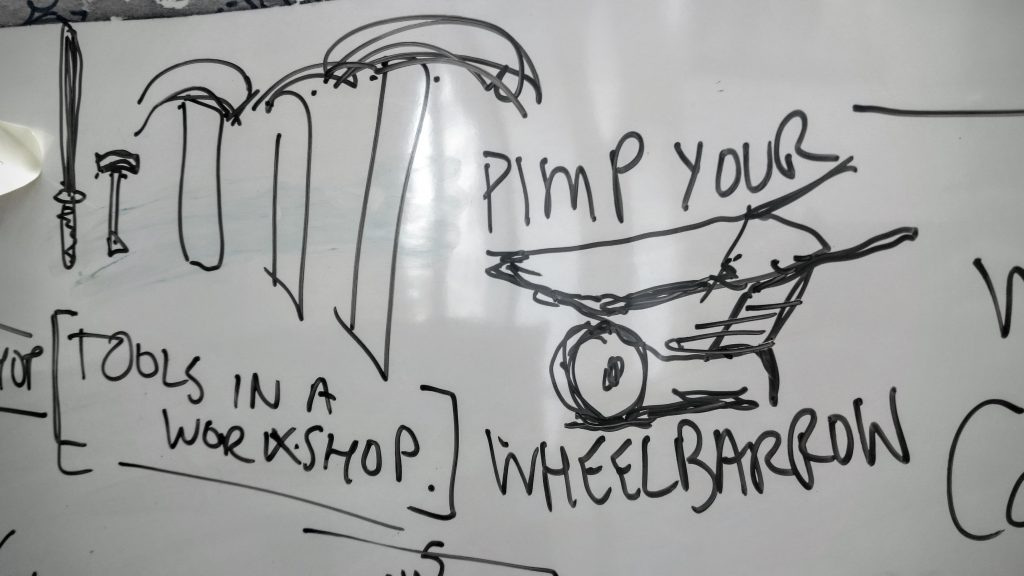
We used the improv approach of ‘Yes, and…’ to build out the metaphor. For example, tools both old and new sit alongside one another in a workshop; there’s times when you need to ‘sharpen your saw’; and there’s times when you know you haven’t got the right tool for the job, so you have to borrow one from a neighbour.
Thinking of our own tools, we had a back-and-forth about what we should use to collaborate. The tension was between wanting to use Open Source technologies wherever possible, and recognising that clients will not always have the skills or motivation to sign up to a new platform. In the end, we decided to abstract away from specific tools to think about the type of technologies we need:
- Email (already sorted through domains.coop)
- File storage (Davros*/Google Drive)
- Informal conversations/backchannel (Slack / RocketChat*)
- Project planning/progress (Wekan*/Trello)
- Record of decisions made (Loomio)
- Pitch/presentation decks (Google Slides)
Those with an asterisk* come with a one-click install process via Sandstorm.io.
Telling the story
Bryan had to head out at lunchtime, so Laura, John, and I dug into setting up Loomio and helping tell our story through a basic pitch deck. We used The Writer’s Journey, which is a modified version of The Hero’s Journey:
After about 45 minutes of hacking and a spectacular brain dump from Laura, we ended up with this. We need to get really clear on our single product for new clients: the Thinkathon. This is a one-day facilitated thinking session that helps clients untangle problems, provides them with a ‘shopping list’, provides clear next steps.
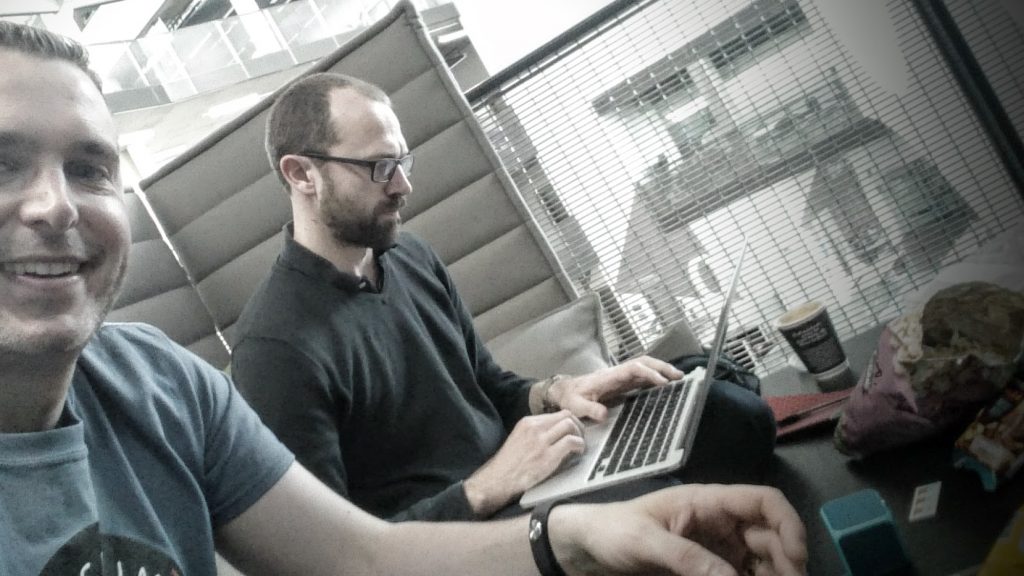
Next steps
A combination of factors meant that we ended up about 4½ hours of time together today. Still, that was enough to get a significant amount of work done towards building weareopen.coop. Things we need to do next include:
- Updating the website
- Creating a compelling description of the Thinkathon
- Setting up the tools we’ll use amongst ourselves and with clients
We’re open for business right now. Part of any new venture involves building the plane while you fly it; the difference is that we’re sharing that building openly. Get in touch if you think we can help you: [email protected]

